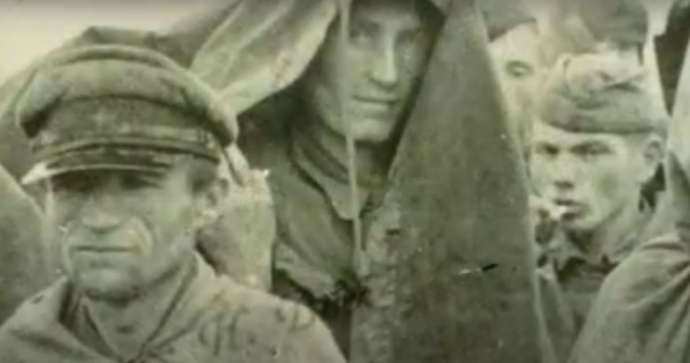STA, 9 May 2020 - Russian Ambassador Timur Rafailovic Eyvazov laid a wreath at the site of a former Nazi prison camp in Maribor on Saturday in memory of several thousand Russian prisoners of war who died there. He said keeping the memory alive was important to prevent history repeating again.
The building of the former Stalag XVIII D camp is being turned into a museum after the Maribor municipality has bought the plot from a private owner, while Russia is to provide the funding to create a museum.
Additional exhibition material was put on show on the occasion of Victory Day to bear witness to the developments there during Second World War.
The exhibition is expected to open to broader public in the autumn, which would make it a real museum after it has so far been open only on special occasions and mostly only to professionals.
#VictoryDay #ДеньПобеды
— Russian Emb/Slovenia (@AmbrusSlo) May 9, 2020
Veleposlanik Rusije Timur Ejvazov, župan mestne občine Murska Sobota, vodstvo ZZB NOB in društva Slovenija-Rusija so položili vence pred spomenikom sovjetskemu vojaku in jugoslovanskemu partizanu v Murski Soboti. Slovesnosti so potekali tudi v Mariboru pic.twitter.com/Mn5d3oSsUs
Ambassador Eyvazov, who took office in Slovenia in January, reiterated his country's commitment to the project. "We still don't know how many people died here, but the figure must have been very high. The facility is exceptional because it has remained untouched," he told reporters.
"The project is exceptionally important in particular for the younger generations to learn the truth about the horrendous crimes that were being committed here 75 years ago. It's important to make sure such horrific history will not be repeated again." said the ambassador.
During WWII, the complex of a defunct customs warehouse in the Maribor Melje borough was part of a German Nazi prison camp. Between September 1941 and March 1942, it held several thousand Russian POWs in extremely inhumane conditions and most of them died there from exhaustion, starvation or disease.
The search through various European archives has so far yielded close to 3,000 names of Soviets who died in the camp. "We want to press on to find all 5,000 names of the Soviet POWs killed," said Janez Ujčič, director of the International Centre for WWII Research in Maribor, which manages the museum.
The plan for the museum was unveiled in 2014 during a visit by Russian Foreign Minister Sergey Lavrov but it has so far hosted only dedicated conferences. A one-storey hall, the complex does not have basic infrastructure such as electricity or toilets, but this should be tackled by autumn.
"Today's Victory Day ceremony represents the first step to museum activity in this former camp. With the present exhibition we've launched a lasting renovation of this complex," said Ujčič, adding that the museum had sparked a lot of interest in the international expert community as well as in Russian media.
The three-part exhibition chronicles Maribor's resistance in 1941, the city's German occupation, the tragedy of the Russian POWs in the camp and the joint struggle of the Rad Army and Partisan resistance movement in the former Yugoslavia.






